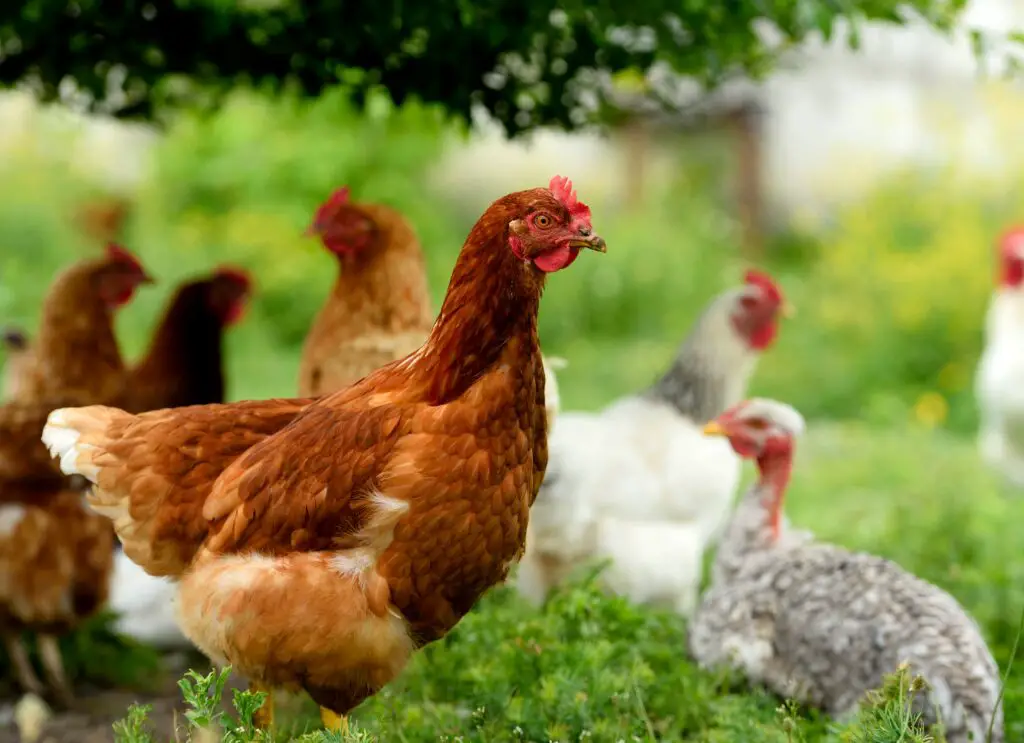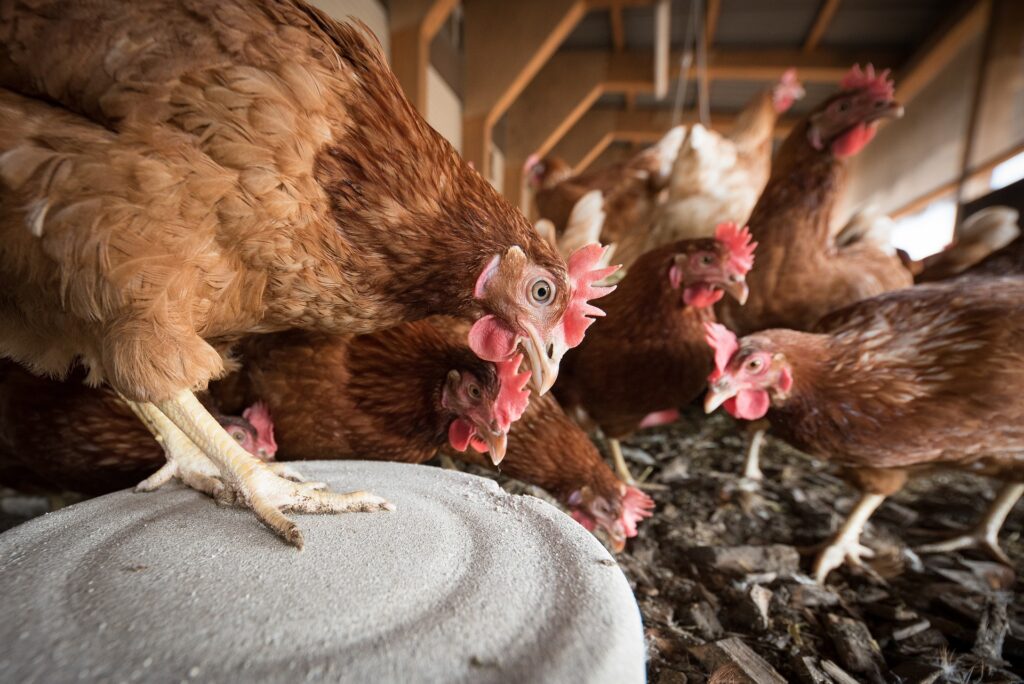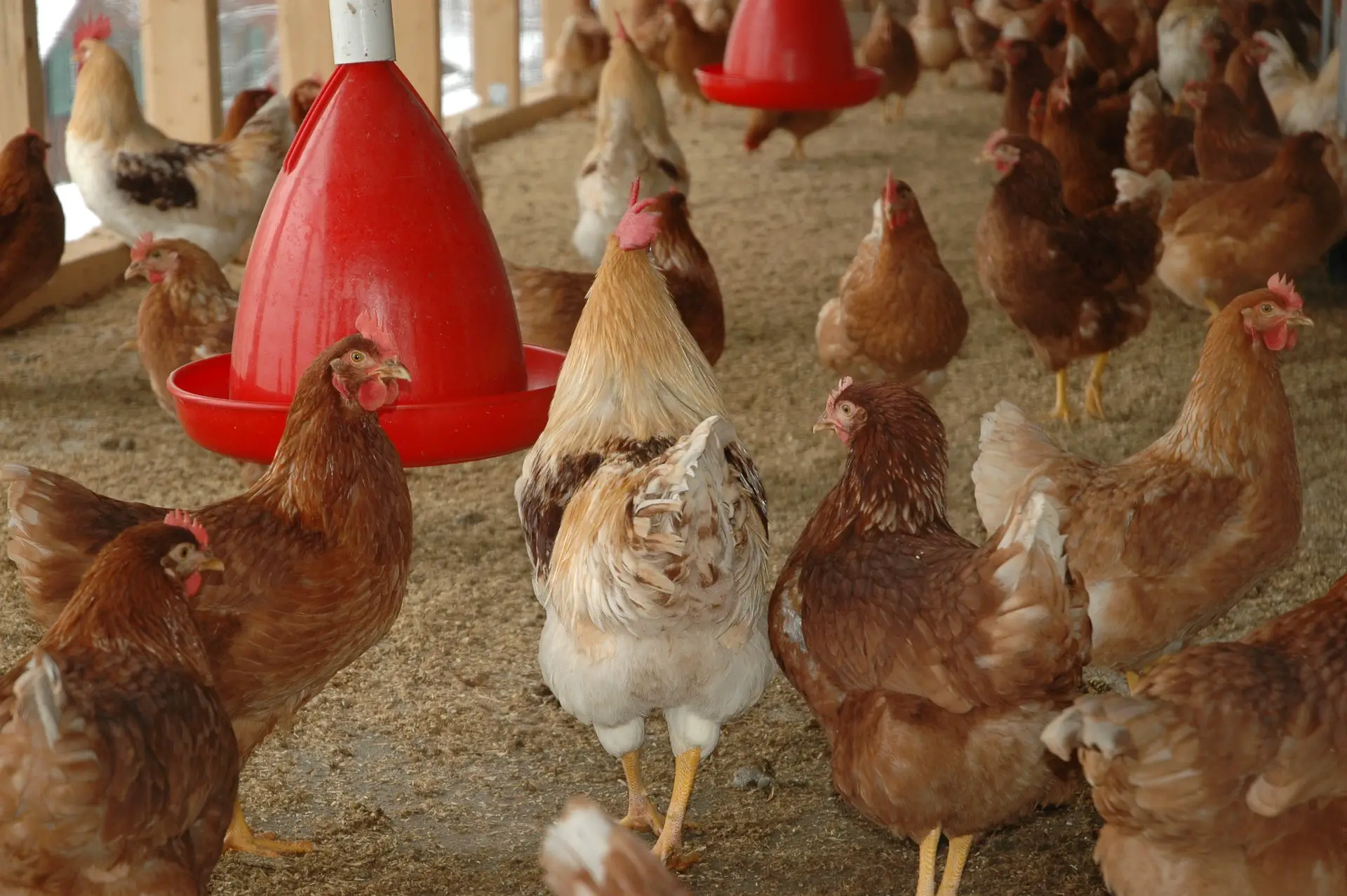Raising chickens is a delightful endeavor that requires thoughtful consideration, especially when it comes to providing adequate space for your feathered friends. How much space chickens need is a crucial aspect of their well-being, affecting their health, behavior, and overall happiness. So, How Much Space Do Chickens Need?
In this guide, we’ll delve into the factors that determine the space requirements for chickens and how to create an environment that allows them to thrive.
You may also want to read about the best chicken coop.
1. Chicken Math: The General Rule
The general rule of thumb for outdoor space is to provide a minimum of 2 to 3 square feet per chicken in the coop and 8 to 10 square feet per chicken in the outdoor run area. However, this is a baseline, and various factors can influence the optimal space for your flock.
2. Coop Space
a. Roosting Area:
Ensure that each chicken has around 8 inches of roosting space. Chickens prefer to roost at night, and providing enough space prevents overcrowding and potential squabbles.

b. Nesting Boxes:
Allocate one nesting box for every three to four hens. Adequate nesting space ensures that hens can lay eggs comfortably without competition.
c. Ventilation and Airflow:
A well-ventilated coop is crucial for preventing the buildup of moisture and ammonia. Good airflow contributes to a healthier environment for your chickens.
3. Outdoor Run Area
a. Grazing and Foraging:
Chickens love to graze and forage for insects and plants. A spacious outdoor run area allows them to exhibit natural behaviors, promoting both physical and mental well-being.
b. Sunlight Exposure:
Ensure that the outdoor run receives ample sunlight. Sunlight is essential for the production of vitamin D in chickens, contributing to strong bones and overall health.
c. Fencing:
Secure the outdoor run with sturdy fencing to protect your flock from predators. The fencing should be buried at least a few inches underground to prevent digging predators.
4. Factors Influencing Space Requirements
a. Breed:
Different chicken breeds have varying space requirements. Larger breeds generally need more space than smaller ones. Consider the breeds in your flock when planning the coop and run size.
b. Age and Size:
Chickens grow, and their space needs change with age. Be mindful of the evolving size of your flock and adjust the space accordingly.
c. Temperament:
The temperament of your chickens also plays a role. Aggressive or territorial individuals may benefit from additional space to prevent conflicts within the flock.
d. Purpose of Keeping Chickens:
Consider the purpose of keeping chickens. If your primary goal is egg production, providing ample space contributes to healthier, more productive hens.
5. Tips for Maximizing Space
a. Vertical Space Utilization:
Make use of vertical space in the coop by incorporating roosts and nesting boxes. This allows chickens to utilize the floor space more efficiently.

b. Rotational Grazing:
Implement rotational grazing if possible. Moving the outdoor run area periodically prevents overgrazing and ensures fresh forage for your chickens.
c. Enrichment Activities:
Provide enrichment activities like perches, dust bathing areas, and hanging treats. These additions not only enhance the chickens’ living environment but also encourage them to explore different areas of their space.
6. Considerations for Free-Range Chickens
If you’re considering free-ranging your chickens, the space requirements become more flexible. However, there are still important considerations:
a. Supervision:
Supervise free-ranging chickens to ensure their safety from predators and potential hazards.
b. Impact on Gardens:
Be mindful of the potential impact on gardens or landscaping. Chickens love to scratch and dust bathe, which may affect certain plantings.
c. Return to Coop:
Ensure that chickens have a secure coop to return to at night. Free-ranging chickens should be trained to return to the coop at dusk to avoid nighttime predators.
Conclusion: Tailoring Space for Contented Clucks
How Much Space Do Chickens Need? In conclusion, determining how much space chickens need is a multifaceted consideration that involves various factors. By understanding the specific needs of your flock, considering breed characteristics, and providing both a well-designed coop and outdoor run area, you can create an environment where your chickens thrive.
Happy and contented clucks are the result of thoughtful space planning, ensuring that your feathered friends lead healthy and fulfilling lives in their cozy coop and expansive outdoor haven.


